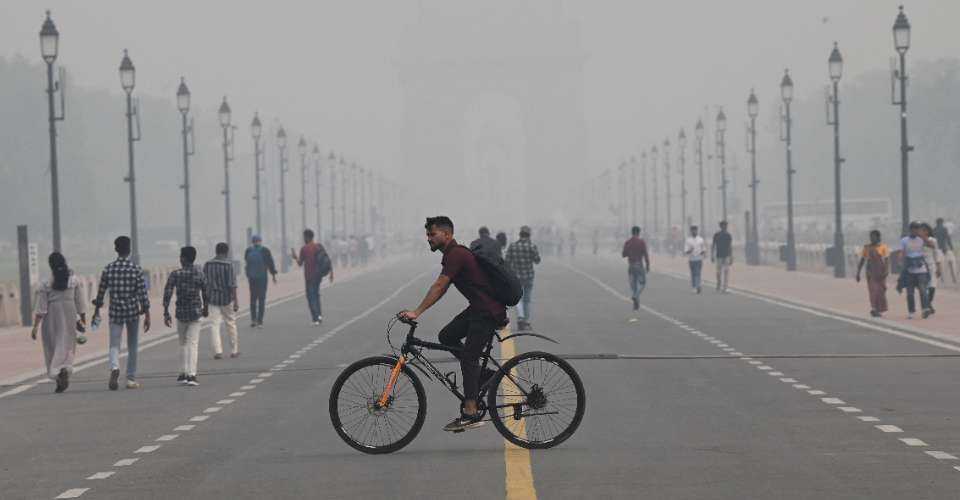
People walk amid heavy smog conditions in New Delhi on Nov. 3, 2023. India’s national capital was ranked as the city having the worst air quality at a global level. (Photo: AFP)
Global rights group Amnesty International has called for cross-border cooperation to reduce the widening impact of air pollution in South Asia.
“We reiterate our calls to the affected South Asian countries to urgently create and implement cross-border pollution action plan,” Amnesty International’s Climate Adviser Ann Harrison said in a press statement on March 20.
There has been “little concerted action by both the affected countries as well as the high-income fossil fuel producers that are planning to expand, not reduce production,” Harrison added.
She pointed out that the issue of air pollution“is largely driven by the burning of fossil fuels.”
Earlier, Bangladesh, Pakistan, and India occupied the top three spots for having the worst air quality among 134 nations surveyed in the 2023 World Air Quality Report released by IQ Air.
Bangladesh occupied the top spot with an average PM2.5 concentration of 79.9 μg/m³ (microgram per cubic meter) roughly 32 times higher than the World Health Organization limit of 2.5 μg/m³.
Pakistan occupied the second spot with an average PM2.5 concentration of 73.7μg/m³ followed by India at the third spot with 54.4μg/m³.
The IQ Air report assesses the PM2.5 concentration — fine particulate aerosol particles measuring up to 2.5 microns in diameter – which is the primary air quality indicator for the World Air Quality Report.
PM2.5 is one of six common pollutants monitored and regulated by environmental agencies worldwide due to its significant impacts on human health and the environment.
“The climate ‘red alert’ in addition to prolonged exposure to toxic air quality in many parts of the South Asian region illustrates the risk of harms to life and health of more than a billion people from accelerating climate chaos,” Harrison warned.
Asian nations were listed among 11 of the top 15 nations with severe air pollution.
Tajikistan (rank 4), Iraq (6), United Arab Emirates (7), Nepal (8), Kuwait (11), Bahrain (12), Qatar (13), and Indonesia (14) were the Asian nations having the worse reported air quality in 2023.
According to WHO data, almost all the global population (99 percent) breathe air that exceeds its guideline limits and contains elevated levels of pollutants, with low and middle-income countries suffering from the highest exposures.
India’s national capital New Delhi was ranked in the report as the city having the worst air quality at a global level. The PM2.5 concentration was recorded at 92.7 µg/m3 in 2023, 37.1 times higher than the WHO limit of 2.5µg/m3.
This was followed by Bangladesh’s national capital Dhaka which had a PM2.5 concentration of 80.2 µg/m3 which is around 32 times higher than the WHO limit.
Amnesty pointed out that 29 of the 30 most polluted cities in India, Pakistan, and Bangladesh. Among the 30 top polluted cities, 26 were in India followed by two in Pakistan, and one each in Bangladesh and China.
Harisson urged high-income fossil fuel-producing states, “to deliver adequate finance to help countries adapt to climate change,” as well as to ensure the operationalization and capitalization of the Loss and Damage Fund this year.
The fund was established during the 2022 United Nations Climate Change Conference to provide financial assistance to nations most vulnerable and impacted by the effects of climate change.
Fossil fuels comprise about 80 percent of the world’s energy use, according to a 2023 report published by Boston University’s Institute for Global Sustainability.

